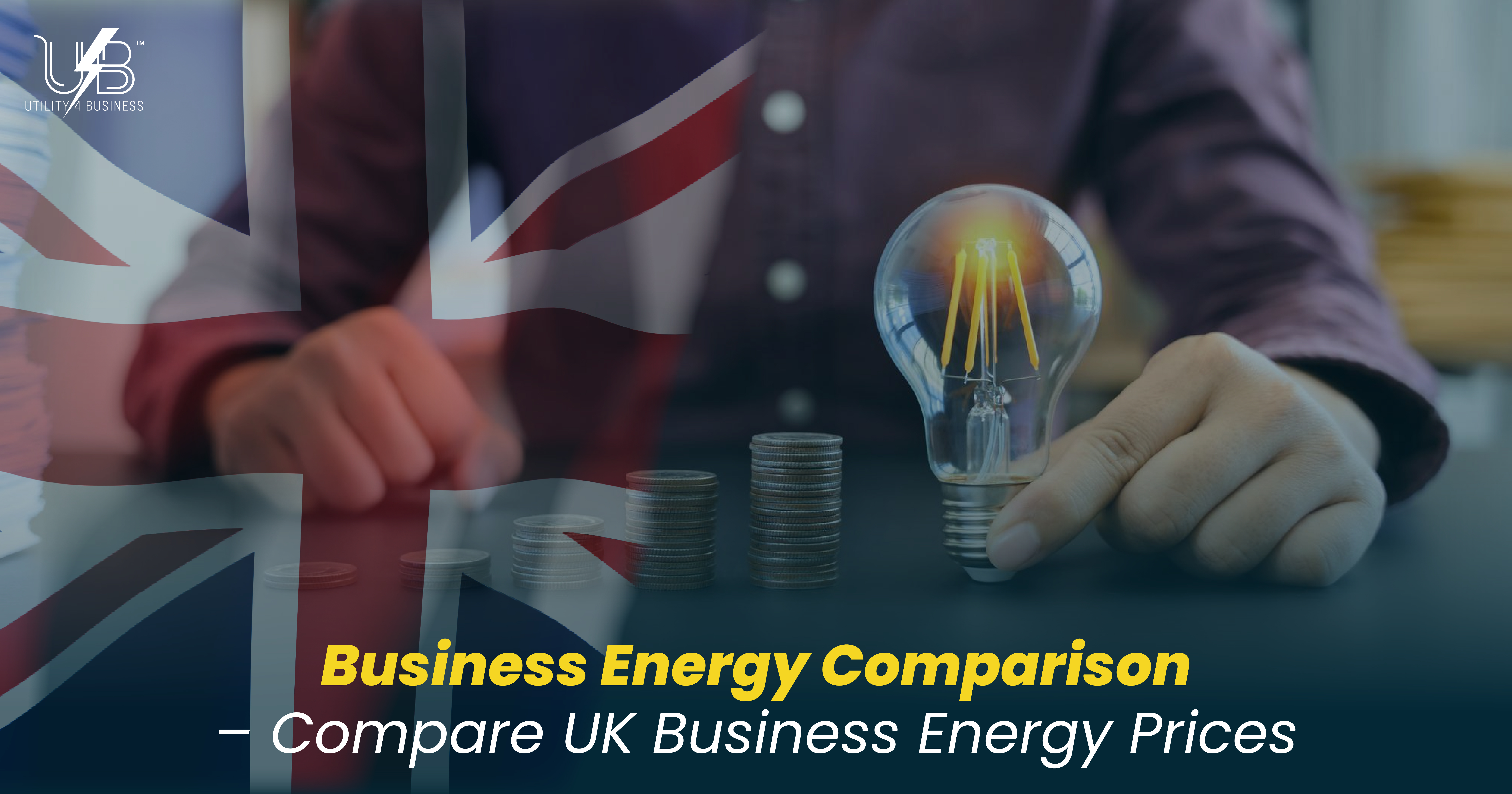Case Study: Successful Business Electricity Comparison
Real Savings: Business Energy Comparison

Energy bills climb when no one keeps a close eye on them. Many UK firms pay more than they need to because contracts roll over, unit rates creep up, and standing charges stay high. This case study follows a mid-sized manufacturing business that used a business electricity comparison to regain control. The team wanted clear pricing, steady costs, and a smooth switch. Utility4Business guided the process and helped the firm compare options with confidence. The result was lower bills, better cash flow, and fewer admin headaches.
Business Context and Background
The company runs a 24/5 operation with a clear weekday peak and lighter weekend usage. Consumption sits at roughly 2.8 GWh per year across two sites in the Midlands. The existing contract was a fixed deal signed during a period of high wholesale prices. The business faced painful renewal terms and had only a short window to make a decision. Leadership wanted a fresh plan before the old contract expired. The finance team also asked for a simple way to forecast monthly spend and avoid surprises. Procurement owned supplier conversations but needed market insight and clean comparisons.
Objectives and Method
The business set three clear objectives. First, cut the unit rate and standing charge versus the renewal offer. Second, secure a fixed term that covered the next budget cycle. Third, reduce the admin burden by signing a contract that fits the way the sites operate.
Utility4Business gathered bills, meter details, and half-hourly data. This allowed precise load profiling, not rough estimates. The account manager then used this data to compare business electricity prices across several contract lengths and structures. The analysis covered base rates, non-energy costs within the unit rate, standing charges, green add-ons, credit terms, and fees. Offers were presented in a like-for-like format so the finance team could make a clean choice.
Market Overview and Buyer Levers
Business users buy energy in a very different way from households. Contract terms vary, non-energy cost elements can shift, and rates change with market conditions. Timing matters. So does usage shape. A buyer with clear data can secure stronger terms than a buyer with only headline kWh figures.
Fixed contracts work for firms that want certainty. Flex products can help if a firm has expert support and the appetite to manage risk. In this case, the board asked for a fixed outcome. Utility4Business set out options that balanced price and contract length. The commercial electricity comparison included 12, 24, and 36-month terms, each modelled against the company’s load profile.
Case Study Narrative: From Data to Decision
Utility4Business created a clean baseline using recent bills and half-hourly reads. The team mapped usage to peak and off-peak periods and confirmed site-level standing charges. The account manager then ran a business electricity price comparison across multiple suppliers and terms on the same day to avoid stale rates.
The first pass showed meaningful spreads. Headline low unit rates sometimes hid high standing charges. Some 12-month offers are priced keenly but expose the firm to renewal risk in one year. A few 36-month terms offered stability but sat above the best 24-month rate. Utility4Business normalised all offers to a p/kWh effective cost that included standing charges. This allowed a fair view across terms.
Implementation and Execution
Switching two sites at once can cause confusion if no one owns the steps. Utility4Business built a simple plan. The plan confirmed final reads, set up the new accounts, and aligned billing dates. The account manager tracked each milestone and kept the finance team updated. The team avoided overlaps in billing and prevented gaps in supply. Meter details matched, which kept things smooth. The new supplier accepted the contract on the agreed terms, and the switch was completed before the renewal deadline.
Results and Impact
The business electricity comparison delivered savings and control. The effective rate dropped by 18.6%, on an annual consumption of 2.8 GWh, which equated to a first-year saving of roughly £42,000 before VAT and CCL. The reduced standing charges contributed another £3,600 per year. Cash flow improved because the finance team could plan bills with more certainty across 24 months. The company met its sustainability aim by adding partial green content without a price penalty. Admin time went down because billing, reporting, and support lived in one place. The board cited the clarity of the price breakdown as a key reason for confidence in the decision.
What Made the Comparison Work
Good input data made the offers accurate. A like-for-like view removed confusion and stopped the team from chasing low unit rates that came with higher standing charges. Timing helped as well. The business avoided a last-minute renewal and kept enough time for suppliers to sharpen their pencils. The decision focused on total cost and contract fit, not just headline price. Utility4Business kept every step simple, from quote request to final sign-off, which prevented delays.
Practical Guidance for UK Businesses
Energy buying does not need to feel complex. A structured comparison business energy process begins with recent bills and meter details. The next step is a clean market request that uses the same start date, contract length, and payment terms for all offers. The final step is a like-for-like summary that lays out unit rates, standing charges, and any green content. Firms gain more by avoiding rushed renewals than by trying to outguess the market. A clear plan, set deadlines, and firm comparison rules produce better outcomes in less time.
Risk, Budgeting, and Future Readiness
A fixed 24-month deal worked for this manufacturer because budgets needed certainty. Other firms may prefer a 12-month horizon if they expect major changes in production, site moves, or energy-saving upgrades. The choice should match business plans, not market noise. Regular reviews matter. A quick check each quarter keeps an eye on usage drift, estimated reads, and billing errors. Small corrections early prevent big surprises later.
Future readiness also counts. Sub-metering helps allocate costs to lines or departments. Simple load shifting can move some tasks away from peak periods. LED lighting, improved controls, and better maintenance often repay quickly. Utility4Business supports these moves by surfacing usage patterns in plain language and flagging fast wins.
Sustainability Without the Premium
Many firms seek lower carbon footprints but worry about price. Partial green content often strikes a good balance. In this case, the business secured 25% renewable content at the same rate as the standard offer. The commercial electricity comparison included options at higher green levels so leaders could see the cost steps before making a call. The business intends to review the green mix at the 12-month review with real use data to inform the next tender.
Governance and Transparency
Energy purchasing sits at the junction of finance, operations, and sustainability. Clear roles stop delays. In this project, Finance owned the approval, operations owned meter access, and Utility4Business owned supplier engagement and the comparison business electricity prices process. Every decision stayed visible. Execs had confidence in what they were doing and not just the outcome. The transparency created trust, removed back-and-forth and sped up sign-off.
Conclusion
This case shows how a structured business energy comparison turns a difficult renewal into a clear decision. Strong data, firm timelines, and like-for-like offers produced an 18.6% saving, stable cash flow, and cleaner reporting. Utility4Business kept the process simple and helped leadership act with confidence. The company now has a clear view of costs for the next two years and a plan to track usage and find more gains. Utility4Business helps UK companies lower costs and cut admin with a clear business electricity comparison.
Find This Article Helpful? Share It Now!
At Utility4Business, we offer top-notch customer support and business utility solutions for businesses across the UK. Consider sharing this article and helping others discover how our expertise can add value to their business success.

Read Our Latest Posts
Explore our latest blog posts and learn how Utility4Business can support your business growth with tailored utility solutions and services. Stay ahead of the curve with the latest information from industry experts and take advantage of our user-friendly comparison services to find the best business deals.


Get Connected
At Utility4Business, our team of experts can help you figure out the highest-value business utility deals that will help your business grow over time.


